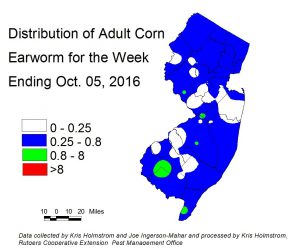The NJ Dept. of Ag, Rutgers NJAES, Allied Recycling, and the Cumberland County Solid Waste Complex are offering October dates for free plastic pesticide container recycling disposal. These are offered to agricultural, professional, and commercial applicators holding a NJDEP Pesticide Applicators License. State, county and municipal government agencies may also participate.
Dates and locations are listed below. Questions? Contact:
Roberta C. Lang, New Jersey Department of Agriculture
Div. of Ag and Natural Resources, Phone: 609.292.2242
[Read more…]


